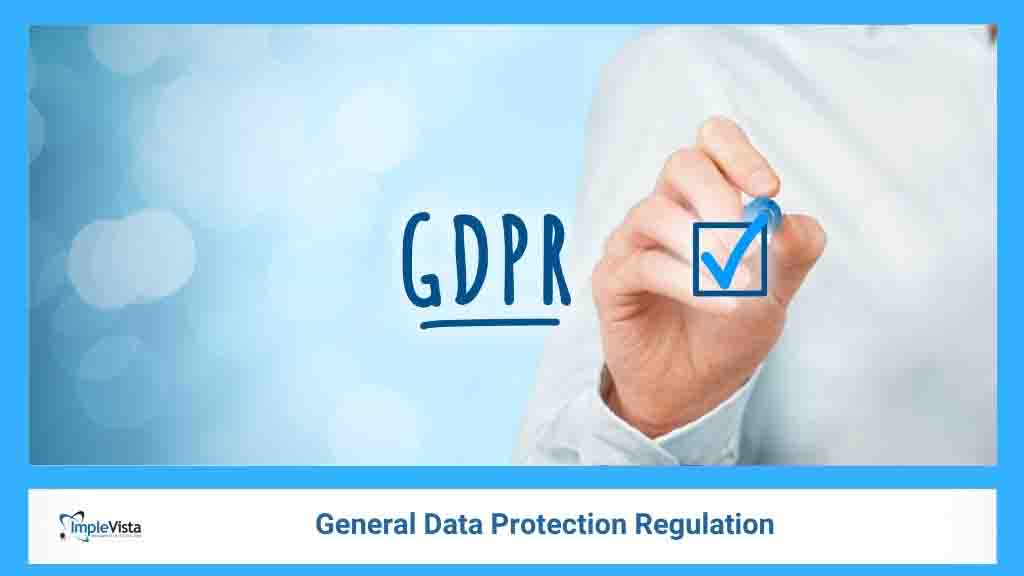In today’s digital marketing landscape, data is king – but data protection laws are the gatekeepers. The EU’s General Data Protection Regulation (GDPR) (effective May 2018) transformed how personal data must be handled worldwide. Now, Bangladesh is working on its own data privacy law. This guide explains GDPR basics and Bangladesh’s emerging data protection framework, highlighting what digital marketers must know to stay compliant and maintain customer trust.
What Is GDPR and Why It Matters to Digital Marketers
The GDPR is the EU’s landmark privacy law, often called “the toughest privacy and security law in the world”. It imposes strict rules on how personal data (names, emails, browsing behavior, etc.) can be collected, stored, and used. Crucially, GDPR applies globally: any organization targeting or processing the personal data of EU residents must comply, even if the business is outside the EU. Non-compliance can lead to hefty fines – up to €20 million or 4% of global annual revenue – so digital marketing campaigns must follow these rules carefully.
Key GDPR requirements include:
- Lawful, fair, and transparent processing: You must have a valid legal basis (often consent) for every use of personal data.
- Consent: Users must give explicit, informed consent before marketers send them emails or set tracking cookies.
- Purpose limitation & data minimization: Only collect data for specific, explicit purposes and only as much as needed.
- Data subject rights: Individuals have rights such as accessing, correcting, or deleting their data (“right to be forgotten”).
- Security: Marketers must protect data with appropriate security (e.g. encryption, strong passwords, HTTPS).
- Accountability & documentation: Businesses must document compliance and, for larger firms, appoint a Data Protection Officer.
For digital marketers, GDPR means changing common practices. Email newsletters require double opt-in and an easy unsubscribe. Websites must display clear cookie banners and privacy notices. Analytics tools must be configured to respect user privacy.
For example, Implevista’s email marketing guide emphasizes that “GDPR (EU) requires explicit consent from subscribers” before sending marketing emails. Similarly, Implevista’s web analytics service stresses “ethical data collection and usage” and explicitly states it adheres to all relevant data protection regulations. In short, GDPR forces marketers to prioritize user consent and data security as core parts of campaign design, not as afterthoughts.
Bangladesh Data Privacy Landscape and Updates
Bangladesh has long recognized a basic right to privacy in its constitution, but until recently it had no comprehensive personal data law like the GDPR. Instead, data issues were scattered in laws like the Digital Security Act 2018 (mainly about cybersecurity and content). That is changing. In 2023-2025, the government drafted a Bangladesh Data Protection Act/Personal Data Protection Ordinance.
This will be the country’s first dedicated data privacy law, establishing protections for individuals and obligations for businesses. The latest draft, presented to the cabinet in July 2025, covers all sectors and data types. It includes extraterritorial scope – meaning it applies to any company or person who processes Bangladeshi personal data, even if located abroad. In practice, this could require foreign tech firms (e.g. social media, e-commerce) and local agencies to comply.
The draft sets out comprehensive rules:
- Consent and lawful basis: Businesses must obtain valid consent before collecting or using personal data (similar to GDPR).
- Data subject rights: Individuals would have rights to access their data, correct inaccuracies, withdraw consent, request data portability, and erase data in certain cases.
- Data localization: The law introduces “data mirroring”, requiring every data controller to keep at least one copy of data on servers in Bangladesh. (Only after meeting conditions can data be transferred abroad.)
- Classification of data: Personal data is categorized (e.g. public, private, confidential, restricted), with stricter rules for sensitive and “restricted” data.
- Security and accountability: Companies would need to implement safeguards (encryption, audits, breach notifications) and appoint Data Protection Officers.
- Penalties: Violations could incur heavy fines. The draft mentions fines up to 5% of global turnover for foreign companies, reflecting the GDPR-style penalty model.
In short, Bangladesh is moving to align with global privacy norms. However, experts note challenges: the extraterritorial reach and data localization rules are unusually strict. For now, the law is pending enactment, but digital marketers should prepare. They should monitor official updates (the ordinance may come into force in late 2025 or 2026), and start reviewing how they handle customer data today.
GDPR Data Privacy vs Bangladesh Law: Key Differences for Marketers
While both the GDPR and Bangladesh’s draft law aim to protect personal data, there are important distinctions that marketers must note:
- Scope & jurisdiction: GDPR applies if you process data of EU residents or offer services to the EU market. Bangladesh’s proposed law applies to any processing related to Bangladeshi individuals, whether done in Bangladesh or abroad. Thus, a local Bangladeshi marketer targeting EU customers needs both sets of compliance measures.
- Consent requirements: Both regulations emphasize informed consent, but their thresholds differ. GDPR often requires explicit opt-in (especially for profiling and special data). The Bangladesh draft likewise demands clear consent for data collection. In practice, marketers may need to obtain renewed or additional consent under the new local law.
- Data localization: GDPR allows free data flow across borders under safeguards (standard contractual clauses, etc.). The Bangladeshi draft is more restrictive – it mandates local data storage for certain categories. A Bangladesh-based marketer using an international CRM or cloud may need to reconsider where data is stored or implement dual-location storage.
- Rights enforcement: Many data subject rights are similar (access, correction, deletion). GDPR explicitly includes portability and the “right to be forgotten”. The Bangladesh draft enshrines comparable rights, including receiving data in a “machine-readable format” for portability. Marketers must be ready to honor such requests, potentially retooling their databases and email systems.
- Penalties and enforcement: GDPR penalties are tiered (€20M/4% turnover). The Bangladeshi law sets similarly steep fines (5% of turnover or a fixed sum for foreign companies). Local enforcement mechanisms (a proposed Data Authority) will handle violations. Fines in Bangladesh could disrupt marketing budgets if compliance is overlooked.
Digital marketers in Bangladesh now face a dual environment: EU law if they engage any EU data subjects, and the forthcoming Bangladesh law for local data. For instance, an online retailer running Facebook ads to both EU and Bangladeshi audiences would need to comply with both GDPR and Bangladesh rules simultaneously. Understanding these overlaps is critical to avoid legal pitfalls.
Practical Implications for Digital Marketing Campaigns
How should digital marketers adapt their strategies? Key implications include:
- Consent & opt-ins: Review all sign-up and opt-in flows. Under GDPR, every marketing email list must be opt-in (no pre-checked boxes). Implevista’s email marketing guide stresses that “GDPR requires explicit consent from subscribers” and that users must have easy opt-out options. Bangladeshi firms should prepare for similar requirements under the new law.
- Privacy policy updates: Ensure your website and app have clear, comprehensive privacy notices. Detail what data you collect, why, and how users can exercise their rights. This transparency is both a legal requirement and a trust-builder.
- Data minimization: Only capture data fields you truly need. Unnecessary data collection exposes you to greater risk. For example, if you only need an email to send newsletters, don’t ask for phone number or birth date (unless needed).
- Use anonymization & security: Whenever possible, use anonymized or aggregated data. If individual data is required, secure it with encryption and access controls. Implevista emphasizes “ethical data collection” and compliance in its analytics solutions. Marketers should work with IT teams to encrypt sensitive fields and use secure servers (e.g. implementing HTTPS on landing pages, as Implevista advises for SharePoint solutions).
- Segment and limit data sharing: If you share marketing data with third parties (ad networks, email providers), ensure they are GDPR-compliant. Use data processing agreements and only send data necessary for the campaign.
- Cookie and tracking management: Implement a cookie consent banner that meets GDPR ePrivacy standards. Bangladesh’s law may introduce similar requirements (the draft mentions regulations for cookies and tracking). Until then, default to GDPR best practice: obtain consent before using non-essential cookies or tracking pixels on your website.
- Data subject requests: Be ready to fulfill requests to view or delete personal data. This could mean building simple forms or workflows so that a user’s request can be processed quickly.
- Training & documentation: Educate your team about data privacy. Document all data flows (e.g. how customer emails go from your CRM to your email platform). Be prepared to demonstrate compliance on demand.
- Plan for localization (long-term): If Bangladesh enforces data localization, marketers using global SaaS tools should assess solutions with local data centers, or maintain a local copy of user data. Keep an eye on official rules — a future Data Protection Authority may issue specific guidelines for marketers.
By integrating these steps, digital marketing campaigns can remain effective while respecting users’ privacy. For example, instead of retargeting with cross-site cookies (which require consent), marketers might leverage contextual ads or first-party data.
Using analytics tools that “adhere to all relevant privacy regulations” (as Implevista’s analytics team does) can give insights without legal risk. Above all, transparency and user trust should be central: customers expect their data to be handled responsibly.
Best Practices: Ensuring Compliance and Trust
To summarize the above into actionable best practices:
- Obtain clear consent: Use explicit opt-in forms and record the consent (date/time and what was agreed). Provide an easy way to unsubscribe or withdraw consent at any time.
- Limit data collection: Only gather data necessary for the campaign (principle of data minimization). Delete or anonymize data when it’s no longer needed.
- Provide value in exchange for data: When asking for personal details (e.g. email, name), offer valuable content or incentives (free eBook, discount). This encourages genuine opt-ins and builds goodwill.
- Keep data secure: Implement technical controls (SSL/TLS encryption, strong authentication, regular patching) and organizational measures (training, access logs). Implevista’s SharePoint and web solutions highlight features like multi-factor authentication, encryption, and auditing to “ensure your business complies with GDPR” and other standards.
- Maintain transparency: Publish an up-to-date privacy policy. Inform subscribers and site visitors how their data will be used. Transparency not only is legally required, it also builds brand trust.
- Monitor updates: Stay informed on the Bangladesh Data Protection Act final version and any rules that follow. Join industry groups or consult resources for Bangladesh (e.g. DataProtection.bg). Subscribe to local tech news and Implevista’s blog for updates.
- Consult experts if needed: If you handle large volumes of sensitive data, consider consulting a data privacy professional or legal counsel. Implevista’s team can assist with GDPR-compliant marketing strategies and technical implementation (e.g. integrating consent management, analytics setup, secure email platforms).
Incorporating data privacy into your marketing strategy isn’t just about avoiding fines — it’s about building customer trust. According to industry reports, 82% of data breaches involve human error (misconfiguration or misuse). By following GDPR and Bangladesh data protection principles, marketers reduce breach risks and protect their reputation.
Conclusion and Next Steps
Complying with GDPR and upcoming Bangladesh data privacy rules is no longer optional for modern marketers – it’s essential. By understanding these regulations and adjusting practices accordingly, you not only avoid legal penalties but also strengthen customer relationships.
Key takeaways:
- GDPR requires explicit user consent, strong security, and respect for privacy rights. Non-compliance can trigger huge fines.
- Bangladesh’s new data law (pending) will impose similar rules at home – including data localization, rights to access/delete, and extraterritorial reach.
- Digital marketers should update consent flows, privacy notices, and data handling processes now. Use secure tools and document compliance.
- Trust and transparency should be central to your strategy: explain how you use data, offer easy opt-outs, and safeguard information.
Don’t navigate these changes alone. Contact Implevista for expert help with GDPR-ready digital marketing solutions. Explore our Digital Marketing Services (SEO, analytics, content, PPC) to see how we build campaigns with privacy in mind.
Subscribe to our blog for more insights on marketing and tech trends. For related advice, see our post on email marketing compliance and best practices and learn how to craft campaigns that respect user privacy. Protect your business and your customers by making data privacy a priority today.
FAQ: GDPR & Bangladesh Data Privacy
- What is GDPR and who must follow it?
The GDPR is the EU’s data protection regulation (effective 2018) that requires businesses to get explicit consent for personal data and grant individuals rights (access, deletion, etc.). It applies to any organization processing EU residents’ data – even if the company is outside Europe. - What rights do individuals have under GDPR?
Data subjects have several rights, including the right to access their data, correct errors, erase data (“right to be forgotten”), restrict processing, object to marketing, and data portability. Marketers must provide easy ways to exercise these rights. - How does Bangladesh’s proposed law differ from GDPR?
Bangladesh’s draft Data Protection law covers all sectors and includes unique requirements like data localization (keeping a copy of data in Bangladesh). It also applies extraterritorially. However, like GDPR, it requires consent and provides data rights to individuals. - Do Bangladeshi businesses need to comply with GDPR?
Yes, if they process personal data of EU residents or target EU customers. For example, a Bangladeshi website selling to the EU must follow GDPR rules (consent, data rights, etc.). Separately, they will also need to comply with Bangladesh’s own law when it becomes effective. - When will Bangladesh’s data protection law take effect?
The draft ordinance was presented in July 2025. It still needs final approval (likely by 2025 or early 2026). Businesses should prepare now by auditing their data practices and drafting new policies, because enforcement is expected soon. - What are the penalties for non-compliance?
The GDPR fines are up to €20 million or 4% of annual revenue. Bangladesh’s draft law likewise proposes steep fines (up to 5% of turnover for foreign companies). Both also allow data breach notifications and potential consumer lawsuits. - How should marketers handle email lists under GDPR?
Use explicit opt-in (no pre-checked boxes) and confirm subscriptions. Always include an easy unsubscribe link. Implevista recommends following “key legal requirements” – for example, “GDPR (EU) requires explicit consent from subscribers”. - Can I transfer data from Bangladesh to other countries?
Under GDPR, you can transfer EU personal data abroad if you use approved safeguards (like Standard Contractual Clauses). Under Bangladesh’s law, cross-border transfer of classified data requires government permission. To be safe, check the specific category of data and keep local copies as required. - What if a user requests their data to be deleted?
Both laws give individuals the right to erasure. If a customer asks you to delete their data, you must do so unless you have a valid reason (like legal obligation). Prepare processes to locate and securely delete data upon request to stay compliant. - How can Implevista help with data privacy compliance?
Implevista offers privacy-aware digital marketing services. For example, our Web Analytics service is built on “ethical data collection” principles. We can assist in setting up consent forms, secure data handling, and compliant marketing strategies so you can focus on growth while meeting GDPR and Bangladesh law requirements.






